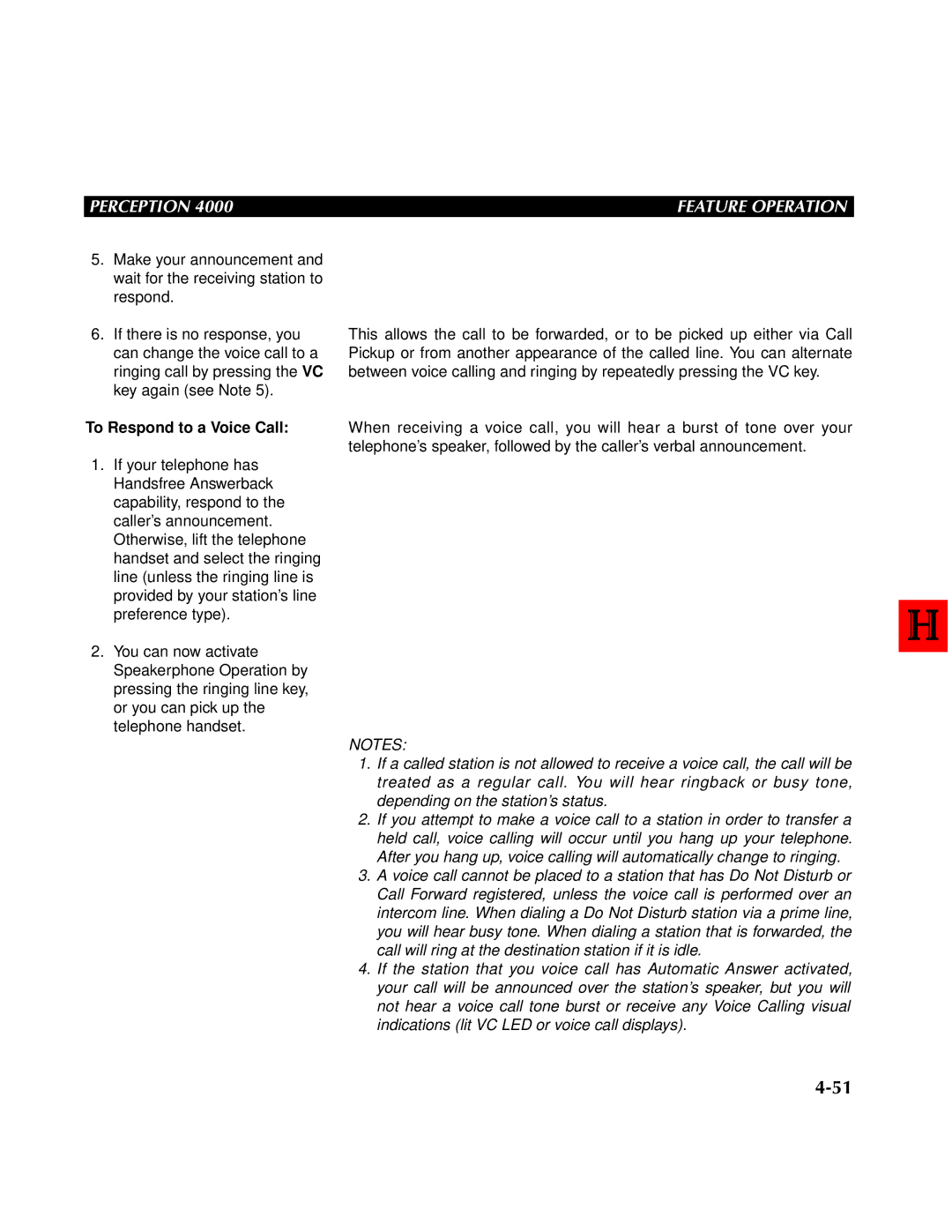PERCEPTION 4000 | FEATURE OPERATION |
5.Make your announcement and wait for the receiving station to respond.
6.If there is no response, you can change the voice call to a ringing call by pressing the VC key again (see Note 5).
To Respond to a Voice Call:
1.If your telephone has Handsfree Answerback capability, respond to the caller’s announcement. Otherwise, lift the telephone handset and select the ringing line (unless the ringing line is provided by your station’s line preference type).
2.You can now activate Speakerphone Operation by pressing the ringing line key, or you can pick up the telephone handset.
This allows the call to be forwarded, or to be picked up either via Call Pickup or from another appearance of the called line. You can alternate between voice calling and ringing by repeatedly pressing the VC key.
When receiving a voice call, you will hear a burst of tone over your telephone’s speaker, followed by the caller’s verbal announcement.
NOTES:
1.If a called station is not allowed to receive a voice call, the call will be treated as a regular call. You will hear ringback or busy tone, depending on the station’s status.
2.If you attempt to make a voice call to a station in order to transfer a held call, voice calling will occur until you hang up your telephone. After you hang up, voice calling will automatically change to ringing.
3.A voice call cannot be placed to a station that has Do Not Disturb or Call Forward registered, unless the voice call is performed over an intercom line. When dialing a Do Not Disturb station via a prime line, you will hear busy tone. When dialing a station that is forwarded, the call will ring at the destination station if it is idle.
4.If the station that you voice call has Automatic Answer activated, your call will be announced over the station’s speaker, but you will not hear a voice call tone burst or receive any Voice Calling visual indications (lit VC LED or voice call displays).
